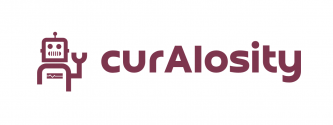Table of Contents
- 0.1 Embracing substantiated Learning
- 0.2 AI in the Classroom
- 0.3 Unleashing Creativity with AI
- 0.4 Enabling Inclusive Education
- 0.5 AI- Powered Assessment and Feedback
- 0.6 Prostrating Language walls
- 0.7 Top 5 Changes AI Can Bring to Education
- 0.8 Addressing Skill Gaps in the pool
- 0.9 Ethical Considerations and AI
- 0.10 Conclusion – How AI Will Revolutionize the Education Industry
- 1 Top 5 FAQs about AI in Education
We forcefully believe that Artificial Intelligence( AI) is poised to revise the education assiduity, transubstantiating the way scholars learn and preceptors educate. With the rapid-fire advancements in AI technology, we’re witnessing a profound shift in the traditional education geography, opening up new possibilities for substantiated, effective, and engaging literacy gests .
Embracing substantiated Learning
AI’s capability to dissect vast quantities of data and identify patterns has paved the way for substantiated literacy gests. How AI Will Revolutionize the Education Industry. Every pupil has unique strengths, sins, and learning styles. Through AI- powered platforms, we can now conform educational content and pace to suit each pupil’s individual requirements. individualized literacy not only fosters a deeper understanding of subjects but also boosts pupil provocation and confidence.
AI in the Classroom
The integration of AI into classrooms has led to innovative tutoring methodologies that enhance preceptors’ capabilities. How AI Will Revolutionize the Education Industry. AI- driven virtual sidekicks and chatbots are available24/7, furnishing scholars with instant support and answers to their queries. preceptors can work AI analytics to cover individual pupil progress, identify learning gaps, and offer targeted interventions, making the literacy process more effective and poignant.
Unleashing Creativity with AI
AI isn’t just limited to easing traditional subjects; it also fosters creativity and critical thinking. By automating mundane executive tasks, preceptors have further time to concentrate on fostering creativity in scholars. How AI Will Revolutionize the Education Industry. Also, AI- powered tools can induce interactive and immersive literacy accoutrements , enabling scholars to explore complex generalities in an engaging and visually charming manner.
Enabling Inclusive Education
One of the most significant benefits of AI in education is its eventuality to promote inclusivity. AI- driven operations can acclimatize content and educational approaches to feed to different literacy requirements, including scholars with disabilities or learning difficulties. By removing walls to literacy, AI empowers every pupil to reach their full eventuality and share laboriously in the educational trip.
AI- Powered Assessment and Feedback
Traditional assessments frequently fall suddenly in furnishing timely and individualized feedback to scholars. AI- driven assessment tools can efficiently estimate scholars’ performance, relating strengths and sins. preceptors can also use this data to offer targeted feedback and acclimatize their tutoring strategies consequently. This real- time feedback circle enhances the literacy process and helps scholars make nonstop progress. How AI Will Revolutionize the Education Industry.
Prostrating Language walls
In multilateral educational surroundings, language walls can hamper effective communication and literacy. AI- powered language literacy operations break down these walls by offering individualized language courses that feed to individual proficiency situations. From pronunciation practice to vocabulary structure, AI helps scholars gain confidence and proficiency in colorful languages. How AI Will Revolutionize the Education Industry.
Top 5 Changes AI Can Bring to Education
Artificial Intelligence (AI) has the implicit to revise the education geography, introducing significant changes that can enhance learning gests and transfigure traditional tutoring styles. Then are the top five changes AI can bring to education
1. Individualized literacy gests AI can dissect vast quantities of data about individual scholars, similar as their literacy preferences, strengths, and sins. With this information, AI- powered platforms can deliver substantiated literacy content, conforming the class to match each pupil’s unique requirements and learning pace. How AI Will Revolutionize the Education Industry. This substantiated approach enables scholars to learn at their own speed, icing better appreciation and retention of information.
2. Adaptive Assessment and Testing Traditional testing frequently follows a one- size- fits- all approach, but AI can change this by offering adaptive assessment and testing. AI- powered systems can stoutly acclimate the difficulty of questions grounded on a pupil’s performance, furnishing a more accurate assessment of their knowledge and understanding. Adaptive testing ensures that scholars are challenged meetly and admit targeted support where they need it the most.
3. AI- Powered training AI teachers can give individualized backing to scholars, helping them with complex subjects, working problems, and answering questions. How AI Will Revolutionize the Education Industry. These AI- powered teachers can offer nonstop support, giving scholars the occasion to learn beyond the traditional classroom hours. How AI Will Revolutionize the Education Industry. For scholars who need redundant help or have specific literacy conditions, AI teachers can offer inestimable guidance and underpinning.
4. Automating executive Tasks AI can streamline executive tasks in educational institutions, similar as grading assignments, managing schedules, and organizing coffers. Automating these processes frees up precious time for preceptors and directors, allowing them to concentrate more on creating engaging and innovative literacy gests for scholars.
5. Enhanced Curriculum Design AI can contribute to class design by assaying educational data and relating gaps or areas for enhancement in the being class. AI- powered systems can help preceptors produce further effective and applicable literacy accoutrements , icing that the class stays up- to- date and aligned with the evolving requirements of scholars and the job request.
AI has the implicit to produce a more individualized, effective, and inclusive educational terrain. By using the capabilities of AI, educational institutions can offer scholars a dynamic and engaging literacy experience, empowering them to achieve their full eventuality and prepare for a fleetly changing future.
Addressing Skill Gaps in the pool
The integration of AI in education isn’t limited to traditional academic settings; it also extends to commercial training and upskilling programs. How AI Will Revolutionize the Education Industry. AI- powered literacy platforms can identify skill gaps in the pool and offer targeted training to address these scarcities. This approach ensures that workers are equipped with the right chops to thrive in a fleetly evolving job request.
Ethical Considerations and AI
As we embrace the eventuality of AI in education, it’s essential to address ethical considerations. icing data sequestration, translucency in algorithms, and mollifying bias are pivotal aspects of responsible AI perpetration.
Conclusion – How AI Will Revolutionize the Education Industry
The arrival of AI in the education assiduity marks a transformative period, promising a future of substantiated, inclusive, and effective literacy gests . moment, we’re at the van of employing the power of AI to reshape education appreciatively. How AI Will Revolutionize the Education Industry. By embracing this technology responsibly, we can unleash the full eventuality of every pupil and preceptor, empowering them to thrive in an ever- changing world.
Top 5 FAQs about AI in Education
1. How will AI revolutionize the education industry? AI is set to revolutionize education by providing personalized and adaptive learning experiences for students. Schools will need to shift their educational models to incorporate a more customized learning process tailored to individual needs and learning styles. How AI Will Revolutionize the Education Industry. AI-powered tools will significantly transform teaching models, grading systems, and accessibility to customized learning, ultimately enhancing the overall quality of education.
2. What role does AI currently play in education? Currently, AI in education operates in the “artificially-assisted” zone, where human expertise is combined with AI capabilities to enhance learning experiences. Applications like Duolingo leverage AI to assist in language learning, and we are witnessing rapid advancements in AI technologies from major companies like Google and Microsoft. AI’s assistive technologies will become powerful tools for teachers and students, improving critical thinking and problem-solving skills.
3. How will AI transform grading systems and reduce grading bias? AI can optimize manual grading processes by tailoring software to reduce subconscious bias and improve the accuracy of assignment grading. Teachers with large classes can benefit from AI-driven grading, ensuring fairness and equity in assessment. How AI Will Revolutionize the Education Industry. By automating grading systems, educators can focus on teaching and assessing skills that are challenging for AI to replicate, such as critical thinking, creativity, communication, and problem-solving skills.
4. What are the ethical implications of AI in education? The integration of AI in education raises ethical concerns, such as ensuring AI-generated feedback is accurate and unbiased. It also poses questions about the impact of AI on critical thinking skills and problem-solving abilities. Proper regulation, legislation, and ethical oversight are essential to mitigate potential negative impacts and create a better educational system that benefits all students.
5. Will AI replace teachers in the future? AI will not replace teachers entirely; rather, it will work alongside them to supplement their weaknesses. While AI can provide personalized tutoring and assist in grading, teachers will continue to play a critical role in fostering complex analysis, critical thinking, creativity, communication, and problem-solving skills in students. The future of education lies in the collaboration between AI and human educators to create a transformative learning experience.

